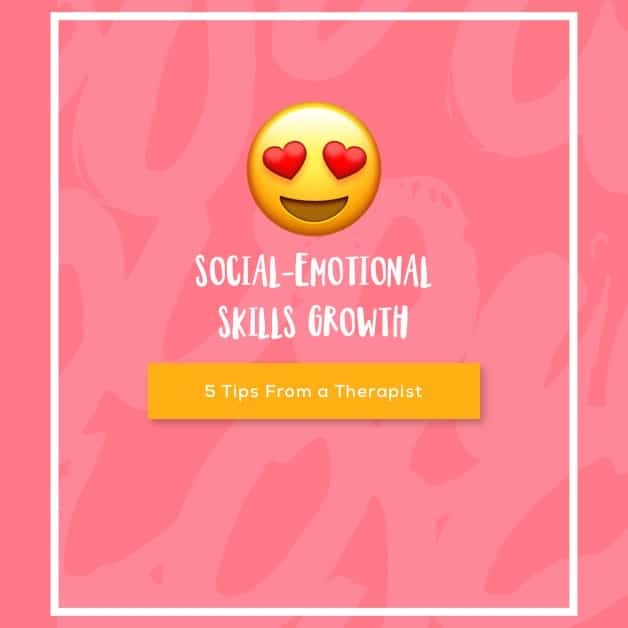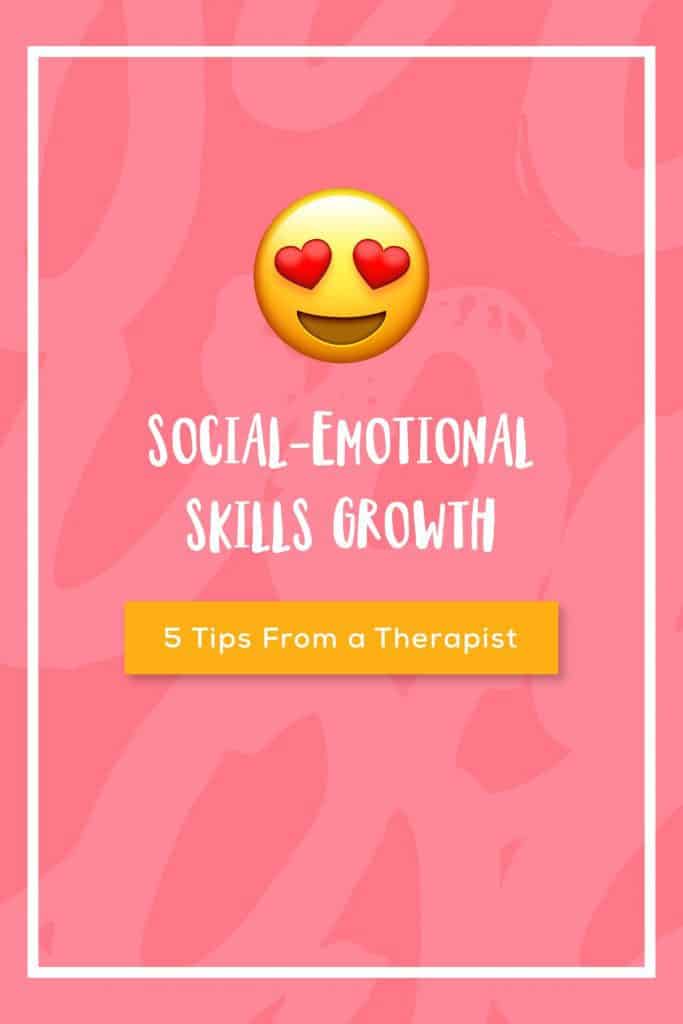
According to recent research, parents are concerned about their “kids missing important social interactions at school or with friends”. This concern applies to parents who are having their kids learn fully remotely as well as parents who have chosen the hybrid model of schooling for the 2020 school year.
To address this social-emotional skills concern, I spoke with Joelle Shipp, a licensed mental health counselor with MindPath Care Centers, a mental and behavioral healthcare organization based in North Carolina. I learned a lot of helpful information from our Q&A session. I hope that you will find it beneficial also.
Social-Emotional Skills Q&A
1. Why is socialization important for students from a professional perspective?
Learning effective socialization skills helps not just with school but across a person’s lifespan. It teaches kids how to build healthy relationships, set boundaries and work on their communication as well as their decision-making skills. These life skills carry on in their friendships as well as romantic relationships later in life.
2. How should parents talk to their children about how social interactions will be different this year?
Parents should have an open discussion regarding the things that are going on in the world that are impacting their child’s life. It’s important to validate their thoughts and opinion. You can agree that things are challenging while still offering them an alternative.
Focus on what is available – what they can do. You can say, “Well we can’t do this but we can do that.” For instance, they might not be able to spend time with their friends in close proximity but they can do things such as drive-bys or calling their friends. It’s not ideal but there are options when parents and their kids focus on being creative.
3. How can parents guide their kids regarding building and maintaining safe social connections during these (socially distant) times?
Once again, this is an opportunity to be creative. Families can find various socially distant activities (i.e. outdoor play or sharing socially distant meals outside). As an example, Joelle shared about a virtual birthday party where the parents had dropped off party bags for the kids beforehand. Then, the kids just played virtual games and watched a movie virtually for the party. Kids can see their friends and do activities with them – just in different ways.
In addition to being creative with friends outside of the home, Joelle also stressed that this is a great time for families to benefit from all of the extra family time that they have together. Family relationships can be cultivated by enjoying activities together like game nights, movies and cooking together.
4. What are the 5 core competencies of social-emotional learning (SEL)?
1. Self-awareness: This is about being aware of your own feelings and emotions and being able to identify them. Joelle suggests checking in with yourself 3 times a day – when you wake up, in the afternoon and in the evening. For kids who have a hard time putting their feelings into words she had a great suggestion – download one of the sheets of emojis. Since kids use technology so much, it’s sometimes easier for them to be able to identify with an emoji in order to put a name to what they’re feeling.
2. Self-management: This is how you take care of your feelings and emotions. It’s figuring out what is needed in order to help you manage your emotions. Examples include exercise, talking, writing, time with friends or coloring. Sometimes, it’s just having alone time. (A time-out doesn’t necessarily have to be a punishment or consequence. Sometimes people just need a break from others!)
3. Responsible decision-making: This involves encouraging kids to think about how their actions might impact themselves or others later on. It’s teaching them how to make the best decisions for the best-desired outcome. For instance, it’s teaching kids (and ourselves!) that a positive attitude often leads to positive outcomes.
4. Social awareness: This is being able to recognize and empathize with others. It’s about not being fixated with “me” but really interacting with and considering others and how our behavior impacts others.
Sometimes it’s helpful for kids to frame it around how it would impact those whom they love and care about. It can be too much of a stretch for kids to think about how what they do impacts strangers. The impact of their actions on someone whom they can actually relate to is helpful though.
We discussed how much social awareness is lacking in current society. This skill need to be cultivated in children so that they can grow up to be socially aware adults.
5. Relationship skills: This is comprehensive. This includes social skills, setting boundaries and making decisions. In summary, it’s interacting in a loving and healthy way.
Initially, my concern was how parents could make sure that teachers were implementing these social-emotional skills in their classes. Joelle made a great point though. We parents need to focus on these skills in the home and not put the burden on educators. That’s especially true during these times when kids aren’t physically in class interacting with educators as much.
These skills can and should be touched on and taught in the home. Because the kids are at home and we’re around them more, we parents can give feedback on how they are using the skills throughout the day. Most importantly, we parents need to model these skills ourselves. It really is true that kids (of all ages) learn from what they see – not just what they’re taught.
5. Are there any recommended online social and emotional resources that you can share?
- Wingsforkids.org: This site breaks down the core competencies, skills for success and has activities. It is especially great for elementary school kids.
- Of course, MindPath Care Centers have various experts who provide therapy for parents and kids who need extra help with socialization or other challenges like anxiety, depression, and loneliness. Their services are offered in a safe, private manner.
You Might Also Like
In the middle of all that is involved with remote learning, it is definitely important that we make our kids’ social-emotional skill growth a priority. I am constantly bookmarking helpful resources as I prepare for this remote schooling reality. Below are a few helpful sites that I recommend for social-emotional learning:
- Social-Emotional Learning Remote Learning: Elementary, middle school and high school lessons by Fulton County Schools
- Social and Emotional Support in Distance Learning: Guidance and resources for K–12 students from the California Department of Education
- Social & Emotional Learning: Social-emotional skills toolkit from common sense education
